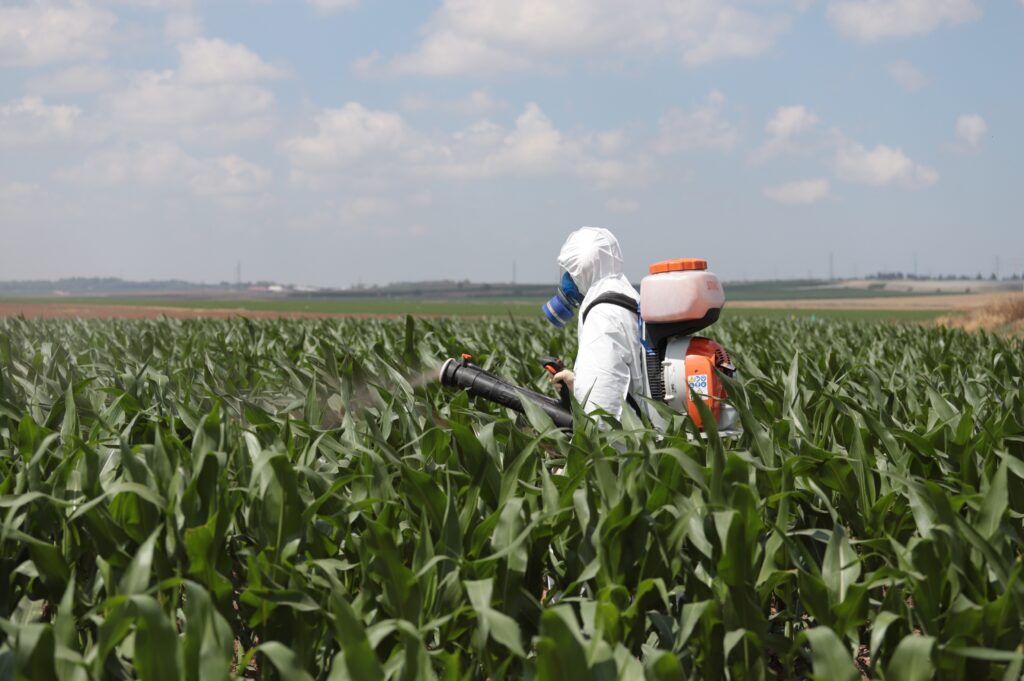Dina Ndelini worked in the vineyards near Cape Town for over 40 years. But one day, her health took a drastic turn. She suddenly had trouble breathing. After visiting doctors, she learned the cause of her health collapse: Dormex, a chemical used widely in South Africa. This chemical, however, has been banned in the EU since 2009.
The Danger of Dormex and Its Impact on Workers
Dormex contains cyanamide, a substance that the European Chemicals Agency classifies as highly dangerous. Despite the EU ban, European companies continue to produce and export Dormex to countries like South Africa. Farmers in these countries use Dormex on crops later sold in European supermarkets.
Dina’s case is not unique. It is one of many stories told at the People’s Tribunal on Agrotoxins, held in Stellenbosch, South Africa. Workers at the tribunal spoke about the devastating effects of pesticide exposure. Many of them, like Dina, have faced cancer, chronic illnesses, and vision loss due to prolonged contact with harmful chemicals.
The Double Standard: Europe’s Role in Exporting Toxic Chemicals
At the tribunal, workers and activists condemned Europe for its hypocrisy. They pointed out that while Europe bans certain chemicals for its own use, it continues to send them to countries in Africa and other regions. “We don’t want these poisons anymore. Europe must stop sending them,” Dina Ndelini said passionately.
Several speakers at the tribunal echoed her words, questioning why Europe exports chemicals that it has deemed unsafe for its own citizens. The situation is especially dire in South Africa’s vineyards, where workers face harsh conditions. Many of the workers have no access to running water, toilets, or safety equipment. Some women even cover their faces with scarves while spraying dangerous chemicals.
Women, in particular, suffer the most from pesticide exposure. NGOs like Women on Farms have pointed out the biological and social tolls pesticides take on female workers. The working conditions, combined with weak regulation, put farm workers in a vulnerable position.
The Role of Corporations and Landowners
Many farm workers blame wealthy landowners for the unsafe working conditions. Weak enforcement of safety laws also plays a significant role in ongoing pesticide exposure. Farm workers are often left with little protection or power when they sign contracts with landowners.
The chemicals used in South African vineyards, like Dormex, are vital for boosting the production of crops. However, these benefits come at a significant cost to the health of the workers. It is clear that the lack of regulations and insufficient protection for workers only exacerbates the issue.
EU’s Response and the Push for Change
The EU has recently proposed a new restriction on imports made with banned pesticides, which has brought the issue into the spotlight once again. However, agrochemical lobbyists argue that South Africa needs these chemicals because of the country’s unique farming conditions. UN experts reject this argument, calling it a clear double standard.
Experts from the UN warn that poor regulation, corruption, and corporate influence prevent fair decisions in many developing countries, including South Africa. While the Rotterdam Convention is designed to protect countries from dangerous chemical exports, critics argue it only adds bureaucracy without providing real safety. The treaty has failed to prevent the continued spread of harmful chemicals.
South Africa has plans to phase out hazardous pesticides. However, the lack of strong enforcement makes it difficult to make progress. Activists are calling on Europe to go further and ban the export of all chemicals that are deemed too risky for use within the EU.
A Global Call for Safer Farming Practices
If Europe took the step to ban the export of harmful chemicals, it could set a powerful example for the global agricultural industry. Activists believe that such a move would promote a healthier and safer future for workers worldwide. It could help push agricultural practices toward sustainability and better protection for workers.
Farm workers around the world are looking to Europe to lead the way. They want to see the implementation of stronger rules, regulations, and oversight to protect them from the dangers of toxic chemicals. The People’s Tribunal on Agrotoxins served as a powerful platform to raise awareness of these issues, and farm workers continue to demand justice.
Looking Toward a Safer Future for Farm Workers
As the tribunal wraps up, farm workers are hopeful that their voices will be heard. They continue to call for action to stop the export of dangerous chemicals and to improve the working conditions on farms. Dina Ndelini and many other workers like her are determined to fight for their health and safety.
Europe must recognize the harmful impact of its policies and take steps to protect workers worldwide. The demand for change is growing, and farm workers are not backing down. They will keep pushing for a future where chemicals like Dormex are no longer used to endanger lives.
This ongoing struggle highlights the need for stronger regulations, better enforcement, and a commitment to fair practices in global agriculture. It is time for Europe to make good on its promise to protect its citizens by ensuring that dangerous chemicals do not continue to harm vulnerable workers abroad.


